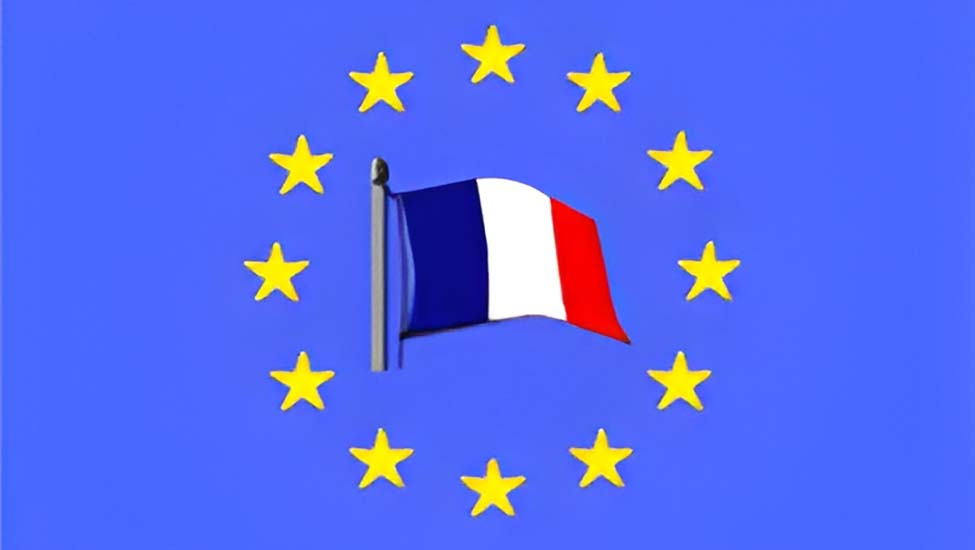The Newsletter n°531 — 30 avr. 2012
La Lettre
Julien Zalc
—
30 April 2012
"Franco-German Relations: a valid model for other bilateral relations?"
29 April 2012

Democracy violate in Ukraine
30 April 2012
2002-2012: Political Developments in Europe. Ten years of Electoral History
29 April 2012
Updating of economic data on the Atlas site
30 April 2012
Order to the Schuman Report on Europe, State of the Union 2012
29 April 2012
Analysis of the situation one week before the Greek general elections
30 April 2012

Presidential election in France: an analysis one week before the second round
30 April 2012
Analysis one week before the general and presidential elections (1st round) in Serbia
30 April 2012
General Elections in Armenia
30 April 2012
Mario Draghi in favour of structural measures to support growth
29 April 2012

Germany maintains its growth forcasts
30 April 2012
The UK in recession
29 April 2012
Recession in Greece will be worse than forecast
29 April 2012
Conclusions of the sixth troika review mission to Ireland
29 April 2012
The austerity plan in Hungary
30 April 2012
Unemployment continues to rise in France
29 April 2012
Unemployment affecting 24.4% of the Spanish working population
29 April 2012
Austerity Budget in the Netherlands
29 April 2012
Agreement in Belgium over the return to balance of the public accounts
30 April 2012
Herman van Rompuy's proposals to revive growth
30 April 2012

Publication of forecasts for the Union's 2013 budget
29 April 2012

Morose Climate for the European Economy
30 April 2012
Extension of the tax base on financial transactions
29 April 2012

The Cohesion Policy at the heart of debate
29 April 2012

Support to the most vulnerable farmers
30 April 2012
Conclusions of the Justice and Internal Affairs Council
29 April 2012
New ¨Partnerships between the EU and ASEAN
30 April 2012

Berlin adopts a demographic strategy
29 April 2012

New Governor for the Central Bank of Cyprus
30 April 2012

Austerity budget for Spain
29 April 2012

Assessment Report of the Spanish Financial Sector by the IMF
29 April 2012
Spain in recession
30 April 2012
59,464,000 people in Italy
30 April 2012

Dissolution of the Dutch Parliament and general elections on 12th September
29 April 2012

Second Economic Forum China-Central and Eastern Europe
29 April 2012

The opposition overthrows the government, Victor Ponta, new Prime Minister
30 April 2012

Europe rises up about the fate of Yulia Tymoshenko
30 April 2012

Towards a boycott of the Euro2012
30 April 2012
Debate on gender equality: a condition for the success of the Arab Spring
29 April 2012

The former President of Liberia convicted by the international court
30 April 2012

Reduction in the public deficit and rise in the public debt
29 April 2012

The hourly rate of labour varies between 3.5 and 39.3€
29 April 2012
Inflation at 2.6% in the euro zone
30 April 2012
Recommendations to the Commission for the management of the Structural Funds
29 April 2012

Analyisis of the new Hungarian Constitution
29 April 2012
"The Arab Spring: one year after"
29 April 2012
Study on funding access by SMEs
30 April 2012
German Art from 1890 to 1930
29 April 2012

Picasso and Vollard: the genius and the merchant
30 April 2012
Agenda
May 2nd
Presidential Election - Hungary (Budapest)
3rd May
"Trade" Council (Brussels)
3rd May
International conference of Defence Ministers of the NATO countries and the former USSR on anti-missile defence. (Moscow)
May 3rd
ECB - Council of Governors (Frankfurt/Main)
6th May
French Presidential Election (2nd round) ()
6th May
Early General Elections in Greece ()
6th May
General Elections (presidential, local and regional) Serbia ()
6th May
General Elections in Armenia ()
European Women Leading the Way
Should we be concerned about European competitiveness?
The European Space Context (after the ESA Ministerial Council meeting in 2025)
In support of European regulation that is compatible with growth
Democratic resilience in Europe in a polarised world
The Editors of the Newsletter :
Magali Balent, Pauline Massis Desmarest, Inga Groth, Charles de Marcilly, Pierre Thibaudat ,Perle Baillard, Mélanie Laplace, Camille Stephan, Marion Zosi.
N°ISSN : 2729-6482
Editor-in-Chief :
Pauline Massis Desmarest
Director of Publication :
Pascale Joannin
Any questions or suggestions?
Contact Us!







